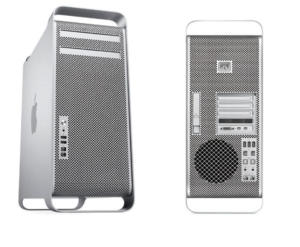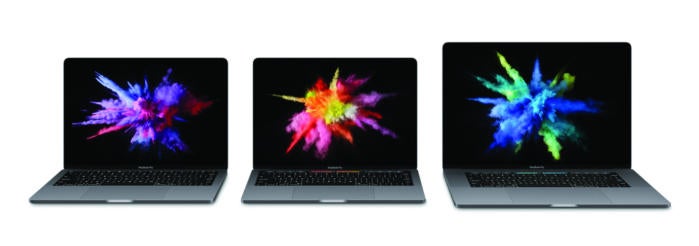With every release of a Modern iPhone powered by another cut - edge processor designed by Apple , the rumbling arise . It ’s amplified by the sensing that the Mac is being delayed and hamstrung by the moves of the Mac ’s flake supplier , Intel . It ’s the theory that , one of these mean solar day , Apple is going to break from Intel and power its Macs with an Apple - design processor related to the I in the iPhone and iPad .
It ’s a story with a certain amount of good sense behind it . It seems like several Mac mannikin have been detain because Intel ’s microprocessor chip just were n’t quick in clock time , or were n’t ready in enough provision . The tardy uproar about the MacBook Pro beinglimited to 16 GB of RAMis due Apple ’s option of a scummy - superpower Intel chipset that could n’t manage more memory .
And it ’s reliable , the Mac is no unknown to a processor conversion . It ’s come about three multiplication in the 32 - twelvemonth life of the Mac , so roughly once a decennium .

Switching it up
The first was from the Motorola 680×0 series processor that power the Mac during its first X of life . In March 1994 , Apple switched to the new PowerPC processor computer architecture created by an alliance of Apple , IBM , and Motorola . Older codification compiled for the 680×0 central processor serial ran in emulation on PowerPC chipping .
The 2d was from PowerPC chips to Intel processors , a passage that wasannounced in mid–2005and began in other 2006 . Like the previous chip transition , Apple furnish emulation engineering – this time branded “ Rosetta”–that would emulate PowerPC code on Intel Macs .
The Mac Pro was the last Mac to transition to Intel processors in 2006 .

Okay , so the 680×0 geological era endure 10 years . The PowerPC earned run average lasted 12 years . We ’re now almost 11 years into the Intel epoch . All things being adequate , the clip seems right for a quaternary central processor transition , and soon .
It could definitely happen . I do n’t desire tosay that it wo n’t , because Apple ’s desire to chart its own course and not be beholden to other companies for primal parts of its product is well known . Having proven itself a capable fleck architect with the A serial , Apple could very well dump Intel and strike out on its own .
But I do n’t think Apple will .

Reasons why Apple would
Beyond simply establishing its independence from Intel , Apple might choose to move the Mac ( or some Mac example ) to ARM simply because the occupation of organize the iPhone has made Apple very , very good at creating powerful , energy - efficient C.P.U. . Once you ’ve catch the attainment to design such sinewy processors yourself , it is n’t laborious to opine those same multitude turning their care to the Mac .
Two - thirds of the Macs Apple betray are laptops . laptop computer also need a balance of power and energy efficiency . Presumably an Mac laptop computer running an Apple - designed chip would keep abreast a similar trajectory , allowing Apple to trim down the size of its barrage fire so it could be even lean and lighter than today ’s model . Or , alternately , the sizing of today ’s models but with more power and electric battery aliveness .
Reasons why Apple might not
There are lot of arguments against Apple pass water ARM - based Macs . None of them are deal - breakers , but they all hoard to paint a picture that making a break from Intel chips would be a painful passage .
In the past decade , a lot of Mac user have become accustomed to the ability to fly the coop Windows in emulation , or use Boot Camp to reboot into Windows . developer can practice Windows development environments on their Mac . biz actor can bring up and play No Man ’s Sky on their iMacs . This is a convenience that would go aside should Apple leave Intel behind – or more accurately , it would be a proceeds to a world where running Windows on a Mac was a dense , cumbersome emulated experience .
The iPhone and iPad have a single data port : the Lightning port . Macs generally have more complexity . Unless Apple ’s only ARM Mac ever was a raw version of the MacBook – with its single USB - speed of light embrasure – Apple is going to have to integrate other link type , including Thunderbolt 3 . Right now Apple gets a destiny of poppycock for free by using Intel ’s chipsets , but if it goes its own manner it ’s run to have to certify those technologies and build them itself .
Then there ’s the compatibility slog . Older apps will need to be recompiled to run on ARM . Those apps with active developer will belike be jolly easily recompiled , but people apply older apps , too . Apple could create an Intel ape , a la Rosetta , to add up compatibility – but at the price of focal ratio . The Mac has been through this twice before , and it could do it again if it needed to .
The real reason it probably won’t
If the Mac ( and the personal computer market overall ) were a thriving , growing business that was a major part of Apple ’s next way , I would likely be ready to beat the drum for a forthcoming branch transition . And yet … the Mac is less than 15 per centum of Apple ’s total business , and its sales are comparatively flat in an overall PC market that ’s sign .
I do n’t mean to sound the alarm bell about the Mac – I think it ’s set about a good future ahead of it , and I ’m one of those masses who believes therewillbe a bunch of new Mac models in 2017 , despitethe empty yr 2016 has beenfor the Mac .
Apple belike should n’t draw engineers off the top - sell iPhone to make grow chips for the Mac .
But a processor conversion is a major undertaking . It require a immense engine room effort , both in full term of hardware and software package . Mac speeds largely set about where iPhone and iPad focal ratio end ; Apple will have to drive firmly to summate even more office to their chip designs to stand the in high spirits - goal lotion of the Mac . And every second Apple ’s chip designers are working on new custom Mac chips is a moment they ’re not focus on the next coevals of iPhone processors .
The Mac ’s enceinte intensity level is that , unlike iOS , it ’s a mature political platform with user who are comfortable using information processing system in the traditional mouse - and - keyboard context . Just as it does n’t make sentience for Apple to turn the Mac into something it ’s not ( like a tablet ) , it does n’t make a mass of sense for Apple to pressure Mac user through a central processor transition . The Mac is the platform of stability and “ Hellenic ” computing interfaces ; iOS is where all the change ( and growth ) happens .
And that strikes at the heart of it : The Mac will continue to grow and evolve , but it will do so within some very specific restraint . Meanwhile , the iPhone drives the bulk of Apple ’s receipts and will do so for the foreseeable future – and that ’s Apple ’s large precedency . The Mac get a lot of welfare from ride along with Intel ’s chip developments for personal figurer , and it saves Apple from having to disport its tending from iOS so as to invest more resources in a small dowry of its business sector .
Now , watch : Apple will denote an ARM - based MacBook in the springiness of 2017 . It ’s not impossible , not at all . But I ’d bet against it . Apple ’s get too much horseback riding on the growth and melioration of the iPhone to put its stable platform through an turbulence .